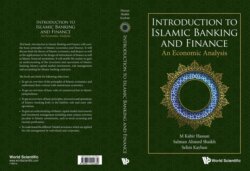Читать книгу Introduction to Islamic Banking and Finance - M Kabir Hassan - Страница 11
На сайте Литреса книга снята с продажи.
Chapter 1 Introduction to Islamic Finance 1.1Normative Foundations of Productive Enterprise in Islam 1.1.1Emphasis on economic pursuits
ОглавлениеWe start with a discussion on how Islamic teachings guide in the quest to earn a livelihood. Islamic principles inspire individuals to make an effort for Halal means of earning as long as they refrain from the prohibited means and ways of earning, such as Riba (interest),1 bribery,2 fraud,3 Maysir (gambling),4 theft,5 the trade of intoxicants,6 and prostitution.7 In general, excluding the above and similar modes of earning incomes, the Qur’an permits mutually beneficial and voluntary exchange.8 As per Islamic principles, endowments granted by Allah are to be used for personal use as well as for societal causes to earn Falah (welfare in this world and hereafter). Prophet Muhammad (pbuh) said, The truthful and trustworthy businessman will be in the company of Prophets, saints and martyrs on the Day of Judgment.9
Islamic teachings compel one to avoid idleness and dependence on others without becoming part of the labour force or engaging in entrepreneurship. Prophet Muhammad (pbuh) said, For one of you to go out early to gather firewood and carry it on his back so that he can give charity from it and be free of need from the people, is better for him than to ask a man who may give that to him or refuse. Indeed, the upper hand (giving) is more virtuous than the lower hand (receiving), and begin with (those who are) your dependents.10 In yet another Hadith, Prophet Muhammad (pbuh) explained, The upper hand is better than the lower hand, and the upper hand is the one that spends, and the lower hand is the one that asks.11 Prophet Muhammad (pbuh) said that begging is not allowed for the physically fit and rich persons except for those who are facing extreme poverty or indebtedness.12
